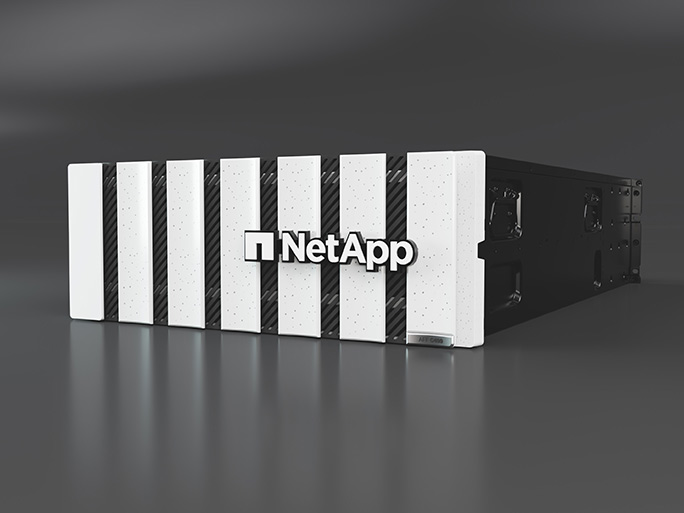NetApp, the Storage Manufacturer Every Cloud Provider Wants to Partner With

At a time when data is more valuable than ever but also generates enormous complexity in its management and orchestration, NetApp is the intelligent data infrastructure provider that responds to these challenges to extract its value.
For years, the information that organisations manage has been one of their most important assets. The volume of data is growing exponentially thanks to increasingly powerful systems and platforms with greater storage capacity. This growth is also generating greater complexity when it comes to managing and orchestrating this data, stored in multiple locations and platforms depending on the needs of each organisation at any given time.
This is a complexity that does not help in extracting the significant value that information can generate, especially given the latest trends in generative artificial intelligence, which is really useful for improving employee efficiency as long as platforms are developed that are powerful enough to process all the data and return quality results in a matter of seconds.
It is true that data processing and data warehousing have always gone hand in hand in the technology sector, but with the advent of generative AI, this pairing has become critical for any type of organisation, and probably a headache for IT managers.
Jaime Balañá, NetApp’s CTO for Latin America, explained in a meeting with the specialised media: “Data is more valuable than ever. In the last 18 months all companies have wanted to incorporate big data-based language models and applications, but not all have succeeded in this adoption due to the complexity that has been generated when it comes to storing all their information.
The main problem is that over all these years, organisations have been generating huge amounts of information, but it is necessary to unify it and bring it together to get the maximum value out of it: “And the infrastructure has to be prepared for this, also in terms of security and sustainability”, continued Balañá, an old acquaintance of this writer and, therefore, of Silicon readers.

For the past 30 years, NetApp has been a benchmark in data storage. It has evolved over this time through innovations that, over time, have become de facto industry standards. And a detail that may go unnoticed but which in the current times says a lot about this company: it has remained an independent company despite the many juicy takeover offers it has received during this time from other ICT giants.
Its latest big move has been to go for the hybrid multicloud model and its intelligent data infrastructure, capable of bringing together and bringing closer all the data of each organisation independently of where it is stored: public, private and on-premise cloud. There are no exceptions here because NetApp has major partnerships with leading public cloud providers such as AWS, Microsoft Azure and Google Cloud, all of which offer NetApp solutions as part of their offerings and develop technology together.
According to the executive, the aim is to be able to actively and adaptively manage information with a high degree of fluidity, dynamism, sustainability, security and compliance with the regulations in force in each country.
This is exactly what the NetApp Intelligent Data Infrastructure, which can be purchased in different forms depending on the needs of each organisation: available as a service, on-premise, in appliance format or through software licenses for installation on standard storage systems, is designed to achieve.
![]()
Among these alternatives, the manufacturer remains strongly committed to its storage appliances, systems optimised to extract the maximum potential and performance from the hardware, as is the case with its latest launches under the NetApp AFF A-Series all-flash range, the fastest growing in the last year.
Specifically, Balañá referred to the AFF A70, AFF A90 and AFF A1K systems, designed to respond to the most demanding needs in workloads related to artificial intelligence, all of them governed by its universal operating system ONTAP. According to the manufacturer, these new ranges double the performance of the previous generation.
We say it is universal because NetApp has managed to find a complete balance between the different needs of organisations through the same management interface, not only to orchestrate the different types of storage, but also the multiple locations in which the data is located or the workloads executed from corporate applications.
Object storage, which has become fashionable (and also standard) through the services provided by public cloud providers, is also covered by ONTAP. Not surprisingly, NetApp is launching a new range of appliances to cover this object storage, called StorageGRID. Balaña highlighted the SG6160 (high-performance), SG5860 (high-capacity) and SG2812 (entry-level) systems, among other models.
The objectives of these appliances for object storage are to reduce investment costs while increasing the performance, scalability and availability of the information stored in this type of storage, such as images and videos, among other formats.
AI and the Netapp + NVIDIA partnership
It is no secret that NVIDIA is at the top of its game because its chipsets are the best suited to the high computational needs of AI-based algorithms. It is curious that a historic company specialising in hardware for videogames is also specialising in this type of workload, but that’s just the way it is: in market capitalisation it has just overtaken Apple and Microsoft as the most valuable technology company.

All of the major vendors are entering into agreements and partnerships with the graphics card manufacturer, and NetApp is no exception in offering customers leading-edge solutions for these types of AI-based workloads.
Balañá highlighted the latest announcements in this area, such as NetApp AIPod with NVIDIA DGX, NetApp with NVIDIA OVX, NetApp ONTAP with NVIDIA NeMo Retriever, FlexPod for AI (together with Cisco) and NetApp AIPod w/ Lenovo for NVIDIA OVX. All of these systems are related to the execution and optimisation of tasks based on generative Artificial Intelligence, which is turning the technology industry upside down and is also changing the way we humans go about our daily work.